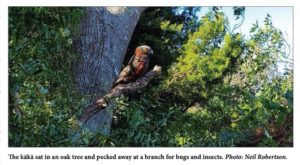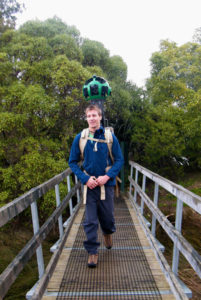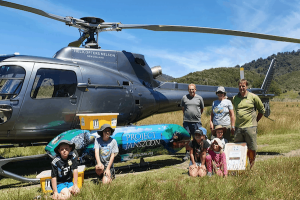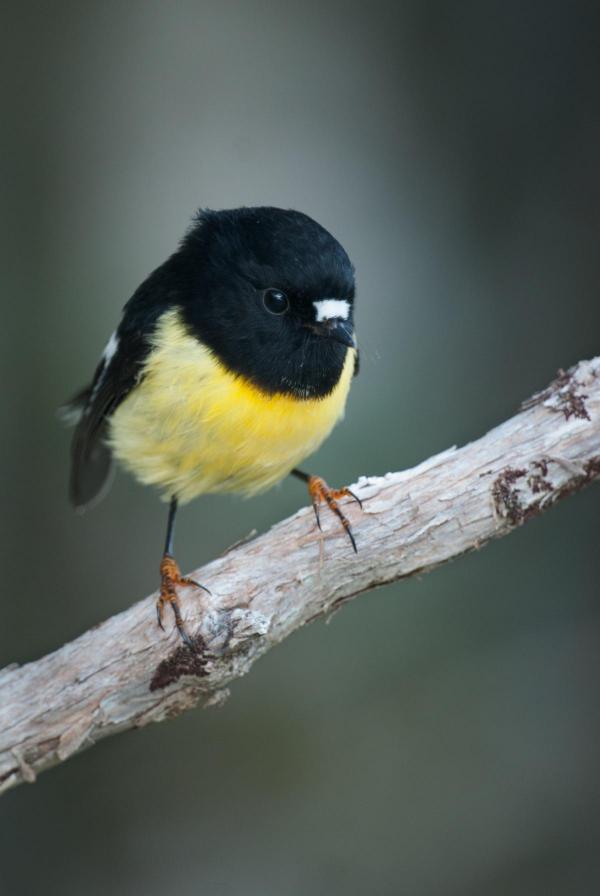
The tomtit is one of our smallest forest birds, easily recognised by its predominantly black plumage contrasting with a small bar of white on the wings and a white breast patch. On some males the breast patch becomes quite yellow, particularly at its upper margin. A small white dot is sometimes visible at the base of the bill. Females and juveniles are duller. The tomtit is usually first detected by its strident song and then by its habit of perching boldly when singing. On forest margins and in low stature shrublands all of this is even more obvious. If you are trying to find tomtit it really is important to be familiar with its song – some good examples being available from this website. http://nzbirdsonline.org.nz/species/tomtit You may also find it helpful to remember this by verbalising the song with a little ditty – perhaps: ” tiddly tiddly tiddly tit ”
Male SI tomtit showing a particulary yellow breast (note the white bill spot and white wing bar) Female SI tomtit
(photo Craig McKenzie – NZbirdsonline) (photo Steve Atwood NZbirdsonline)
Tomtits, like all of the Petroica, feed on invertebrates – usually what they can catch on the ground or trunk surfaces. Their habit of perching with head cocked to one side while they search for a wriggling grub is characteristic.
Tomtits nest in cavities in rotting trunks which seems to make them particularly vulnerable to predation by rodents. Their distribution reflects this with their gradual disappearance from habitats where predation in greatest. In many South Island forests they are now only found at the higher altitudes where this predation pressure is somewhat less. While there are occasional records from coastal forests in Abel Tasman these are unusual. In contrast this species is commonly encountered at higher locations such as the upper Wainui, Moa Park, Evans Ridge and Harwoods Hole.
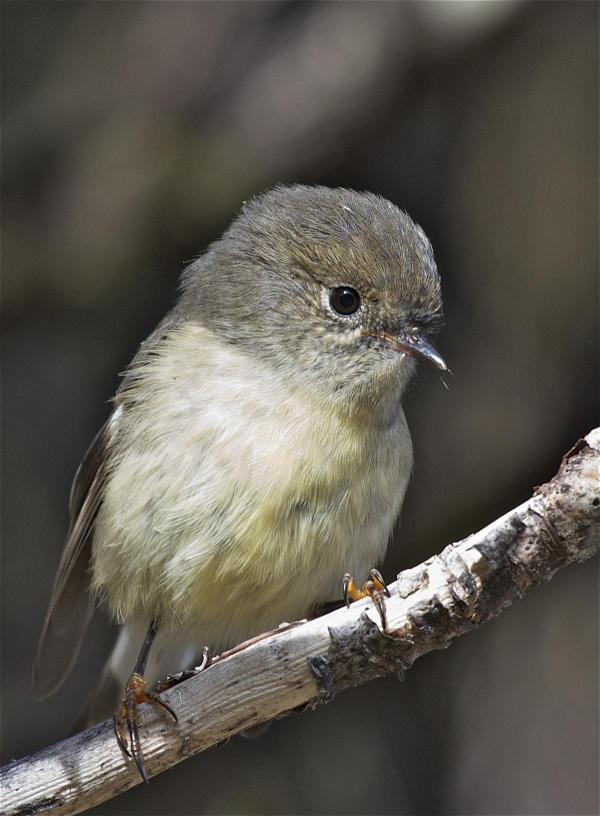
Project Janszoon anticipates that if rats can continue to be controlled across a broad expanse of the park those tomtit that disperse downslope will survive and breed. A gradual expansion of their range can be expected.

